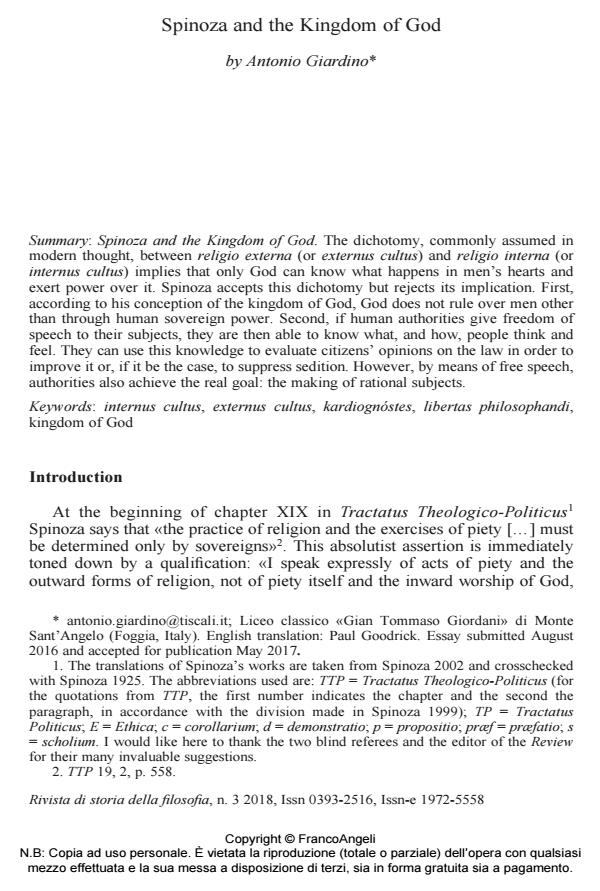Spinoza and the Kingdom of God
Titolo Rivista RIVISTA DI STORIA DELLA FILOSOFIA
Autori/Curatori Antonio Giardino
Anno di pubblicazione 2018 Fascicolo 2018/3
Lingua Italiano Numero pagine 29 P. 419-447 Dimensione file 117 KB
DOI 10.3280/SF2018-003003
Il DOI è il codice a barre della proprietà intellettuale: per saperne di più
clicca qui
Qui sotto puoi vedere in anteprima la prima pagina di questo articolo.
Se questo articolo ti interessa, lo puoi acquistare (e scaricare in formato pdf) seguendo le facili indicazioni per acquistare il download credit. Acquista Download Credits per scaricare questo Articolo in formato PDF

FrancoAngeli è membro della Publishers International Linking Association, Inc (PILA), associazione indipendente e non profit per facilitare (attraverso i servizi tecnologici implementati da CrossRef.org) l’accesso degli studiosi ai contenuti digitali nelle pubblicazioni professionali e scientifiche.
The dichotomy, commonly assumed in modern thought, between religio externa (or externus cultus) and religio interna (or internus cultus) implies that only God can know what happens in men’s hearts and exert power over it. Spinoza accepts this dichotomy but rejects its implication. First, according to his conception of the kingdom of God, God does not rule over men other than through human sovereign power. Second, if human authorities give freedom of speech to their subjects, they are then able to know what, and how, people think and feel. They can use this knowledge to evaluate citizens’ opinions on the law in order to improve it or, if it be the case, to suppress sedition. However, by means of free speech, authorities also achieve the real goal: the making of rational subjects.
Parole chiave:Iinternus cultus, externus cultus, kardiognóstes, libertas philosophandi, kingdom of God
Antonio Giardino, Spinoza and the Kingdom of God in "RIVISTA DI STORIA DELLA FILOSOFIA" 3/2018, pp 419-447, DOI: 10.3280/SF2018-003003